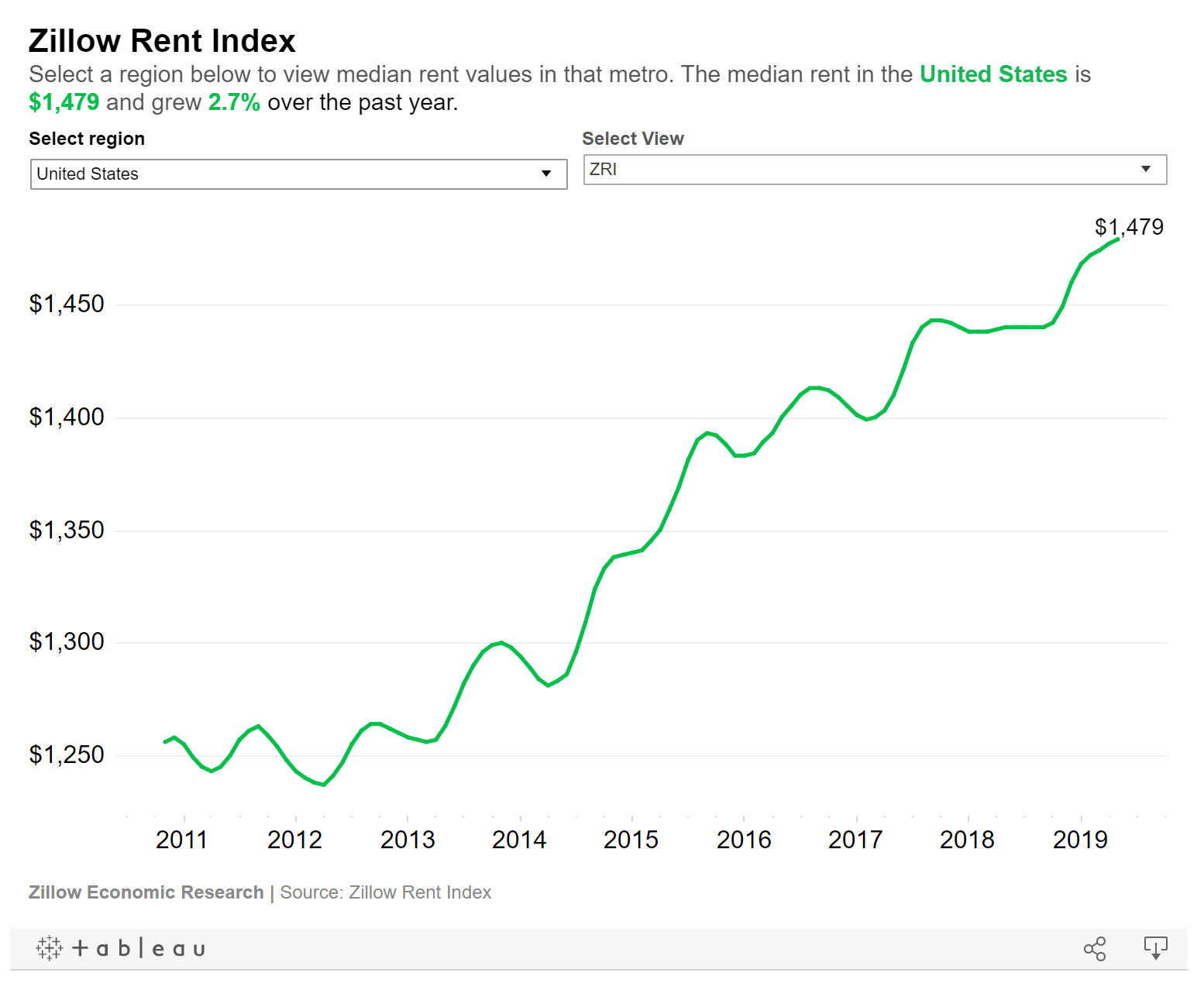Rent Increase: A Guide to Raising Rent

March 3, 2020
4 min read
Whether to raise rent on a tenant is a question landlords struggle with all the time. If you have a good tenant, you might be tempted to keep them happy by not raising rent. But if your insurance premiums, taxes and utilities increase, the higher costs could eat into your profits. And if your rental market is heating up, you might not be getting what you could for your property.
Download our free landlord notice templates, including a rent increase letter, late rent notice and lease renewal letter.
According to the Zillow Group Consumer Housing Trends Report 2019, 78% of renters experienced a rent increase in 2019 and 55% say their decision to move was directly tied to the raise in rent. As the landlord, you may decide to increase rent if:
- Market rates have increased.
- There are property maintenance expenses that need to be covered.
- Property taxes have increased.
- Insurance premiums have increased.
- Homeowners association or condo fees have increased.
Note: This guide is for informational purposes only. Zillow, Inc. does not make any guarantees about the sufficiency of the information in or linked to from this guide, or that it’s compliant with current, applicable or local laws. Landlord-tenant laws change rapidly and may be regulated at the federal, state and local levels. This resource is not a substitute for the advice or service of an attorney; you should not rely on this resource for any purpose without consulting with a licensed attorney in your jurisdiction.
Can a landlord raise rent?
Depending on local laws, a landlord may be able to raise rent before renewing the lease. A lease agreement sets a fixed rent price for a given period of time (i.e. six months or one year). Typically the rent price won't increase or decrease during that period, even if the property changes ownership.
For tenants who are part of the Housing Choice Voucher Program, or Section 8, a rent increase is usually only possible once a year, depending on state and local laws. Each year, the HUD sets new Fair Market Rent standards, which can be used to help determine if a rent increase is appropriate. Typically, a copy of the written rent increase notice is sent to the local public housing authority for approval. Always check with a local lawyer before raising rent for anyone who is using a Housing Choice Voucher.
When can a landlord not raise rent?
While maintaining a competitive rental price is key to managing a successful investment property, there are certain circumstances where a landlord cannot raise the rent. For example, it may not be possible to increase rent if:
- You attempt to raise the rent during the term of the lease.
- The lease does not allow a rent increase.
- Advance rent increase notice was not properly given.
- The property is rent controlled.
- The increase is or could be construed as retaliation against a tenant.
- The increase constitutes discrimination against a tenant according to the Fair Housing Act.
- You're trying to force a tenant to move out.
- You attempt to raise the rent by more than what's allowed by local law.
How much can a landlord raise rent?
The amount a landlord can increase rent depends on where you live. Some cities may require that you pay for your tenant's relocation costs if you raise their rent over a certain amount. Based on reviews of available public data, rent increase percentages of about 2% were typical across the U.S. in 2019.

What is the average rent increase per year?
When renters experienced a rent hike in 2019, the average rent increase was $196 — up from 2018's $125 monthly rent increase.

How to raise rent
The Zillow Group Report found that 66% of renters make at least one sacrifice to afford their rent. If rent increase percentages were any higher, they could exceed a tenant’s income increases. When raising rent on a tenant, consider doing the following to keep them from wanting to move out:
- Communicate when you're raising the rent.
- Explain how your new rent rate is competitive for your local market.
- Make reasonable rent increases on a consistent basis (such as 2% or 3% each year).
- Provide plenty of notice.
While you're determining the rental price that best fits your financial goals, your tenants are doing the same. You can use Zillow’s rent affordability calculator to help determine what general income range a tenant may need to afford your rental. Zillow Rental Manager provides an easy-to-use online payment tool so you can enjoy stress-free rent collection.
How much notice for rent increase do landlords need to give tenants?
Typically, a landlord is required to give tenants at least 30 days' written notice before their lease expires or is up for renewal, but the required amount of notice can vary by state, city or town. Work with a local attorney to make sure you're complying with rent increase notice requirements in your city or state.
- Download our free landlord notice templates, including a rent increase letter, late rent notice and lease renewal letter.
- For more articles, tips and trends about being a landlord and managing properties, visit our Rentals Resource Center.
Connect with us!
Learn how Zillow Rentals can help you reach your goals.
Stay informed. Stay ahead.
Access exclusive industry insights, market trends, and expert tips. Subscribe now to receive quarterly Zillow Rentals newsletters!